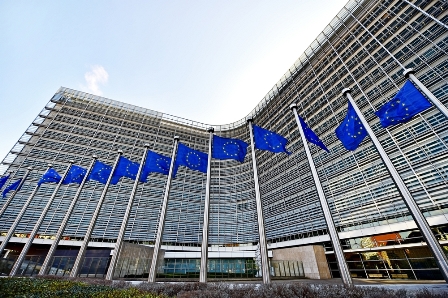The ruling was handed down by Judge Gregory Keyser remotely, by circulation to the parties’ representatives by email last week (25 November).

It relates to proceedings brought against the council in British courts by Max Recycle in January 2020, more details of which can be found below.
Max Recycle has argued that commercial waste collections undertaken by the council breach state aid rules as they are carried out using the same staff and vehicles as the council’s household waste collections, which are paid for by the taxpayer.
Max Recycle said it has lost “significant business from customers who have begun to purchase commercial waste collection services from the council instead”.
Durham council says it carried out commercial waste collections legally.
It applied to the court to have the proceedings struck out, because Max Recycle has “no real prospect of succeeding on the claim”. The judge granted the council this request.
Oliver Sherratt, head of environment at Durham County Council, said: “We are pleased with the judgment made by the High Court on Wednesday. We have operated our commercial waste service in accordance with our statutory duties and obligations and will continue to do so.”
A spokesperson for Max Recycle said the company “fundamentally disagrees” with the decision and said the company will be appealing, “and will continue with our fight for public sector transparency”.
The company’s full statement can be seen at the bottom of this page.
European Commission

The dispute between the two dates back to 2011 when HMRC introduced VAT exemptions for councils, which Max Recycle said was anti-competitive and gave councils a commercial advantage over private waste businesses offering the same type of service.
In 2016, Max Recycle was denied permission to appeal a 2016 ruling which stated that VAT exemptions provided to local authorities for waste collections were not anti-competitive (see letsrecycle.com story)
In August 2018, the company took its case to the European Commission, reporting Durham county council for allegedly breaching state aid rules (see letsrecycle.com story).
However, according to a statement from Max Recycle, it brought this case before the British court as “seemingly, having made a complaint to the European Commission, it was taking an interminable amount of time to receive any feedback from them”.
Ruling
The council argued that the claims for declaratory and injunctive relief are an abuse of process because “they seek to pre-empt the outcome of an investigation currently being held by the European Commission into TDC’s complaints”.
It added that criteria has not been met by Max Recycle to submit the claim.
Max Recycle stated that the council uses discounted costs, also known as a subsidy, to “undercut the commercial marketplace, in turn generating substantially enhanced profits, over and beyond what the entire private sector can expect to enjoy”.
The judge stated that “it is not enough for a claimant to show that the rule of EU law infringed was intended …. or has caused the claimant to suffer loss. The claimant must also show that the breach was sufficiently serious to give rise to state liability”.
Judge Keyser added that, “even if the council is wrong, the position it has taken it not so obviously lacking in merit that its conduct can be considered to amount to a wilful breach of the State aid rules or to be inexcusable”.
He said Max Recycles’ argument is “at best merely arguable but that it carries no conviction and has no realistic, as opposed to merely fanciful, prospect of success. It ought not, therefore, to be permitted to proceed.”
Any changes to state aid laws post-Brexit would also have to be a new claim, he said.
For Max Recycle’s full statement, click here.











Subscribe for free